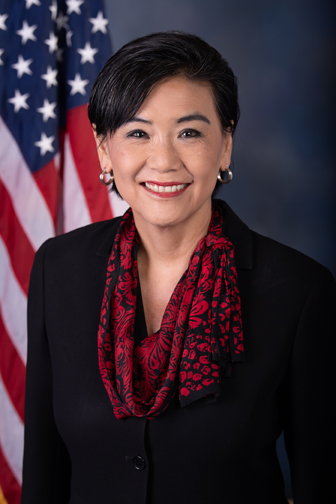Veterans Have Done So Much For Our Country, They Deserve Congressional Support
Up until the very last day of my late father’s life, one of the things he was the proudest of was his service to his country. The son of a Chinese immigrant to California, he served in the Army during World War II as a radio communications sergeant in Okinawa. When he passed, we fulfilled his wishes to be buried in a military cemetery.
One of my of my highest priorities as a member of Congress is ensuring the veterans in my district and across the country have easy access to the highest quality healthcare, job training and other services. We can live freely and peacefully in this country because of their service and I believe it is my responsibility to ensure they receive the support and resources they earned.
But our work is never complete. While overseas for 13 months in Iraq, servicemembers like Sergeant First Class Heath Robinson were exposed to toxic smoke from burn pits, which were used by the military to dispose of waste – such as chemical weapons, asbestos and fuels. He then returned home to his wife and daughter; however, a decade later his health began to decline.
Because the military long denied any connection between burn pits and chronic illnesses, such as cancer and respiratory diseases, Sgt. Robinson’s wife Danielle had no support to help her husband fight lung cancer. Eventually, his health declined so much that he passed away at the age of just 39. But before he died, he bravely testified in front of the U.S. Senate, begging lawmakers to formally recognize the link between burn pits and its devastating health consequences, and to help the 3.5 million veterans who may have had this toxic exposure.
It’s because of heroes like Sgt. Robinson that during last Congress we took a major step forward in addressing the issue of toxic burn pits that impacted so many servicemembers who were unable to obtain the healthcare they so desperately needed. We passed the Honoring our PACT Act of 2022, which President Biden signed into law. This landmark legislation finally allows our veterans to receive benefits from the VA for 23 toxic exposure-related conditions, including those who have been previously denied benefits and care for burn pit exposure. It is the largest increase in veterans’ health benefits in 30 years.
Since its passage, the PACT Act has been remarkably successful in getting veterans their much-needed benefits, with over one million claims submitted with a 77% approval rate, including for nearly 900 of my constituents.
And for years, our region faced a lack of resources for our local veterans, which is why I fought so hard alongside veteran service organizations to bring a VA health clinic to my district. And in 2019, the San Gabriel Valley Community Based Outpatient Clinic opened its doors in Arcadia, finally giving local veterans a close-by option for care. I also want to share that the East Los Angeles Vet Center was recently relocated to Monterey Park, which means our local veterans can receive counseling on benefits, employment, substance abuse issues and medical services. Together, these resource centers ensure that our local veterans can receive high-quality, well-rounded services in their own community.
I’m also thrilled to highlight the recent opening of the Los Angeles Regional Veterans Business Outreach Center. Located at Long Beach City College, it will provide essential resources to veteran and military spouse entrepreneurs and small business owners. This is especially notable because, until this Center’s opening, the closest Veterans Business Outreach Center to Los Angeles was two hours away in San Diego.
If you or a veteran you know are encountering any issues with the VA, please don’t hesitate to reach out to my District Office for assistance. My trained caseworkers and I will do everything we can to deliver for the brave men and women who risked everything in service to our country and to the families.

Judy Chu serves Congressional District 28, which includes Pasadena and the west San Gabriel Valley of Southern California.
